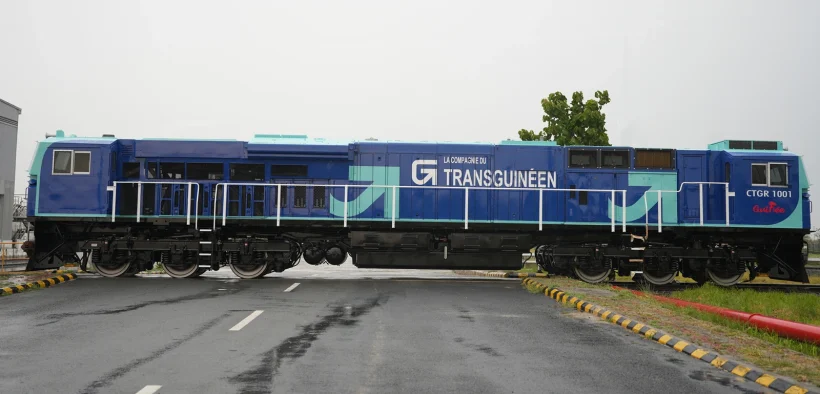India Sends First Export Locomotive from Bihar to Africa
Share

India has taken a big step in train manufacturing by sending its first export locomotive from the Marhowra Diesel Locomotive Plant in Bihar to the African country of Guinea. This is the first time a high-tech train engine made in India is being exported to another country.

This important locomotive was made by the Marhowra plant, which was started under Prime Minister Narendra Modi’s ‘Make in India’ plan. The plant is operated by a joint venture between Indian Railways and the American company GE (now Wabtec). It is located in Saran district, Bihar, and focuses on building world-class diesel locomotives.
The locomotive is a WDG4G model and is equipped with the latest technology. It has safety features like a crash-hardened design, automatic control systems, and strong brakes. It also has a powerful 4,500-horsepower engine and meets global emission standards, meaning it is better for the environment. This kind of engine can pull very heavy loads over long distances, which is helpful for countries like Guinea that are developing their railway systems.
The export was made possible after a team from Guinea came to inspect the plant and approved the quality and performance of the engine. The engine was then loaded on a ship and sent from the port of Pipavav in Gujarat to Guinea.
Prime Minister Narendra Modi praised this achievement and said it shows India’s growing strength in manufacturing and global trade. The Railway Minister also said this is just the beginning and more export orders may come in the future. He added that India is not only making trains for its own use but also helping other countries build better transport systems.
This event also brings pride to Bihar, which is now part of India’s high-tech production network. It creates job opportunities for locals and shows how smaller towns can become centers of innovation.
India’s export of this locomotive is a milestone that proves Indian factories can build products that meet international standards and compete in global markets.











